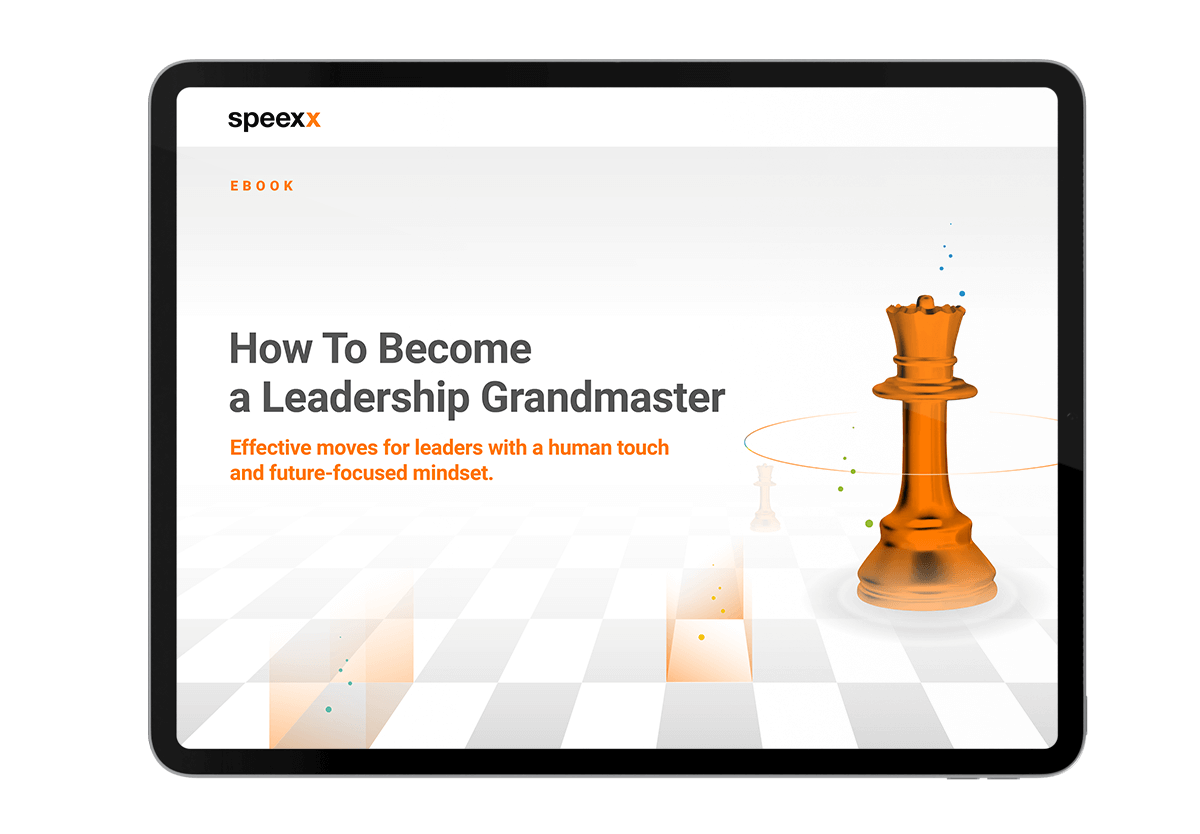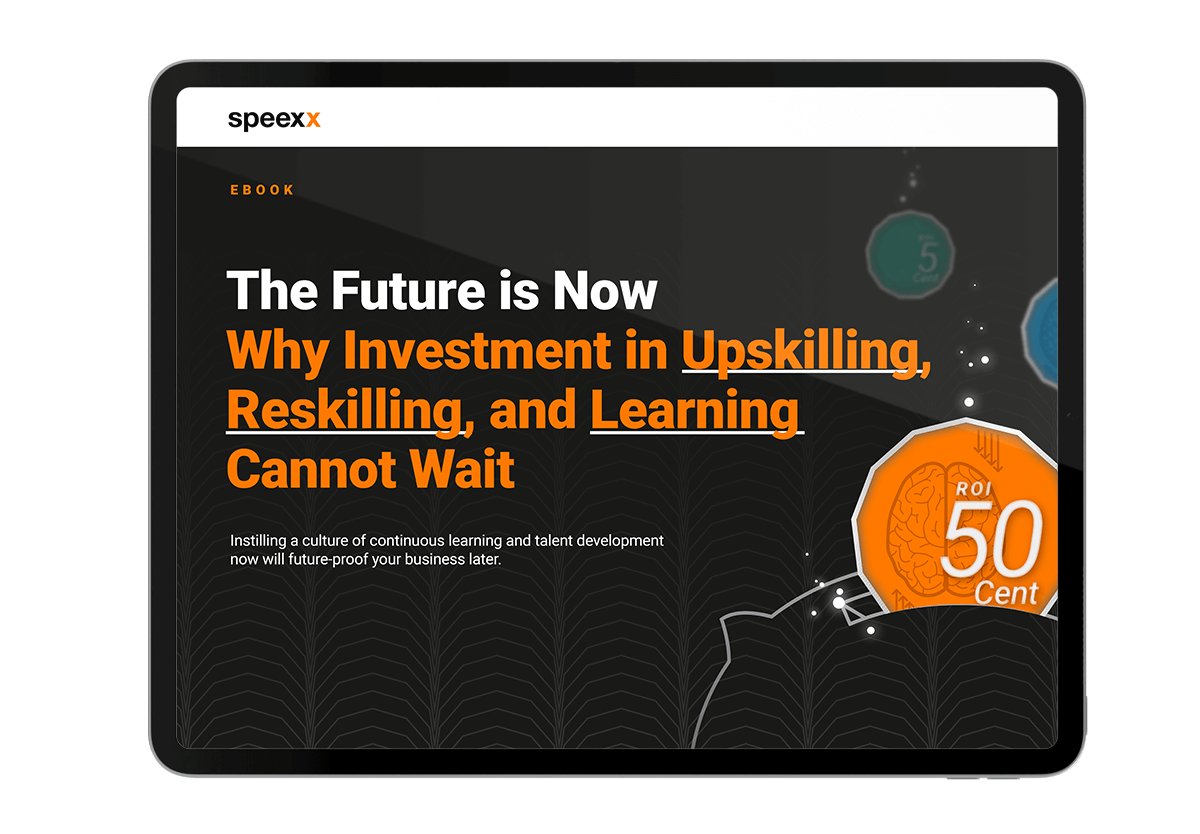Learning and Development (L&D) is a critical element of organizational health, as it can help drive a company ahead of its competitors by enabling employees to learn and grow. However, implementing effective workplace training is not as simple as it may seem. HR professionals must fully understand the needs of their organization and employees before assessing training needs and developing a comprehensive L&D initiative.
Fully understanding the needs of their organization and employees includes asking the right questions, which can help identify areas for improvement and enhance the effectiveness of L&D programs.
According to Alison Wood Brooks and Leslie K. John, professors at Harvard Business School, asking questions is a valuable first step that can set off a chain of positive events. By asking the right questions, an organization:
- Encourages learning and sharing
- Improves innovation and performance
- Builds empathy and trust among teams
- Reduces conflict and misunderstanding
Every part of an organization benefits when managers ask questions about their people and processes, and it is particularly valuable in the area of L&D. When it comes to workplace learning, the wants, needs, and frustrations of employees are not always clear, so it’s important to ask questions that help you understand how to best facilitate learning and development projects and improve your training management.
Content
Training Needs Assessment (TNA) for better training management
Assessments play a crucial role in evaluating organizational performance and identifying areas for improvement. There are three types of assessments that can be used to achieve this: organizational assessment, occupational assessment, and individual assessment.
- Organizational assessment evaluates an agency’s skills, knowledge, and abilities, identifying what is needed to address problems and weaknesses while enhancing strengths and competencies, especially for Mission Critical Occupations (MCO). It also considers external factors such as changing demographics, political trends, technology, and the economy.
- Occupational assessment focuses on identifying gaps in the skills, knowledge, and abilities required for affected occupational groups. It looks for new ways to do work that can eliminate these discrepancies or gaps and support the agency’s new direction.
- Individual assessment analyzes how well individual employees are performing their jobs and determines their capacity to do new or different work. This type of assessment provides valuable insights into which employees need training and what kind of training would be most beneficial for them.
By utilizing these three types of assessments, organizations can gain a comprehensive understanding of their performance and develop meaningful solutions to improve their overall effectiveness.

You Want to Make the Right Moves as a Leader and Lead With Success?
How to guide your people with a human touch!
Get the document

Identify skills and knowledge gaps
Before you can start developing lesson plans and training materials, you must first identify the training needs of your employees by assessing skills and knowledge gaps. This includes language skills and business coaching needs. Dig into the details to understand what their needs are. The more focused L&D initiatives are, the more effective they’ll be. Once you know exactly what knowledge is lacking, you can design better, more specific programs for learning and development.
During this phase of assessing training needs, ask:
- What skills are needed to succeed at work?
- What skills do employees already have? What skills do they not have?
- Is this an entirely new skill, or can employees build off prior teachings and knowledge?
- What might prevent employees from learning these skills?
- What internal and external obstacles might affect your training programs?
By asking these questions, you can discover not only what skills are lacking in your organization, but why these gaps exist. This is also an opportune time to gain insight into how skills vary across teams and look further into talent distribution within the organization.
Determine why new skills are needed
It’s also important to assess your training needs at an organizational level. Sure, there are some obvious skills gaps that need to be filled—but there should also be a reason behind your decision to have employees improve. Employer branding might just be one.
At this stage, ask specific questions about how new skills, including language proficiency and business coaching, might contribute to the organization’s overall strategy and growth:
- How will these skills be used on a daily basis?
- Why are these skills valuable to your organization?
- How do these skills align with the company’s mission and vision?
- How will these skills improve functions across teams and departments?
- If employees don’t learn these skills, how will it impact the organization?
With these questions in mind, you can more directly assess the costs and benefits of your training programs and determine how much impact they will have on the KPIs and goals of your company.

Request your Speexx Demo now!
Evaluate former training efforts
When assessing training needs, it’s essential that HR and L&D professionals aim to learn from past experiences—which is easy to do by adopting a design-thinking approach. The process of prototyping and testing is an endless cycle that allows organizations to continually improve, especially since it puts the needs of the user first.
When studying past initiatives, ask:
- When was the last time (if ever) that employees were trained for this skill?
- What was the success rate of previous training programs?
- How was the training introduced and distributed?
- Was the training accessible to all employees? Is there something about the program that may have been a roadblock to some employees?
Understand who needs to be trained
Once the big-picture questions have been answered, it’s time to assess your training programs based on the requirements of the individuals who will be using them. This includes language training and business coaching.
Ask these questions to better understand employees’ expectations and capacities:
- Who is the training program designed for? Is it being distributed across the company, or is it specific to a department, regional office, or an individual employee?
- How quickly do employees need to learn these skills?
- What is a realistic timeframe for learning, while taking employees’ current workloads into consideration?
- How can you ensure that training is completed successfully, without learners feeling bored or overwhelmed?
Knowing what learners need and want out of a training program – and taking how they learn into consideration – can help you to ensure that an initiative is successful. By knowing exactly who will be involved and what they will need to learn, you can create a training program that makes learning enjoyable and goals achievable.
Make training accessible to all
The final step in assessing your organization’s training needs is all about access. This includes everything from mobile-friendly applications to virtual classrooms and bite-size learning modules that facilitate microlearning.
When determining what sort of access your employees need for language training and business coaching, ask:
- What platforms and devices can be used to access training material?
- What content formats are available to learners?
- Can employees work through the training material at their own pace?
- Is the training flexible enough to accommodate individual schedules?
- Does the program take learners’ backgrounds (culture, language proficiency) into account?
- How easily can employees ask for help from HR/training administrators?
The easier and more accessible you make learning, the more successful a program will be. Employees are far more likely to work their way through short videos that they can watch on a tablet or phone than they are to dig through an outdated LMS that doesn’t offer a clear learning roadmap.

Identify the Skills Gaps of Tomorrow and Invest in Up- and Reskillling
The workforces of the future will be consciously built!
Get the document

Assessing training needs: There’s never too many questions
To develop an effective training program that yields positive outcomes, asking the right questions is essential. By asking insightful questions, you can gain a better understanding of your employees’ requirements and preferences, as well as your company’s objectives and timeline for achieving specific skill-based targets. A comprehensive assessment of training needs is crucial, and asking the right questions can increase your chances of success.
One way to assess your learning and development initiatives while saving time, effort, and resources is by using Speexx. Speexx is a language learning and business coaching platform that can help you evaluate your training needs and design an effective program tailored to your business goals.
Speexx offers an AI-powered language training needs assessment and business coaching with a human-centered approach that does not stop at determining the language skill level. Speexx identifies the strengths and pain points of your team so that you can invest where it truly matters. Try Speexx today to assess your training needs!


